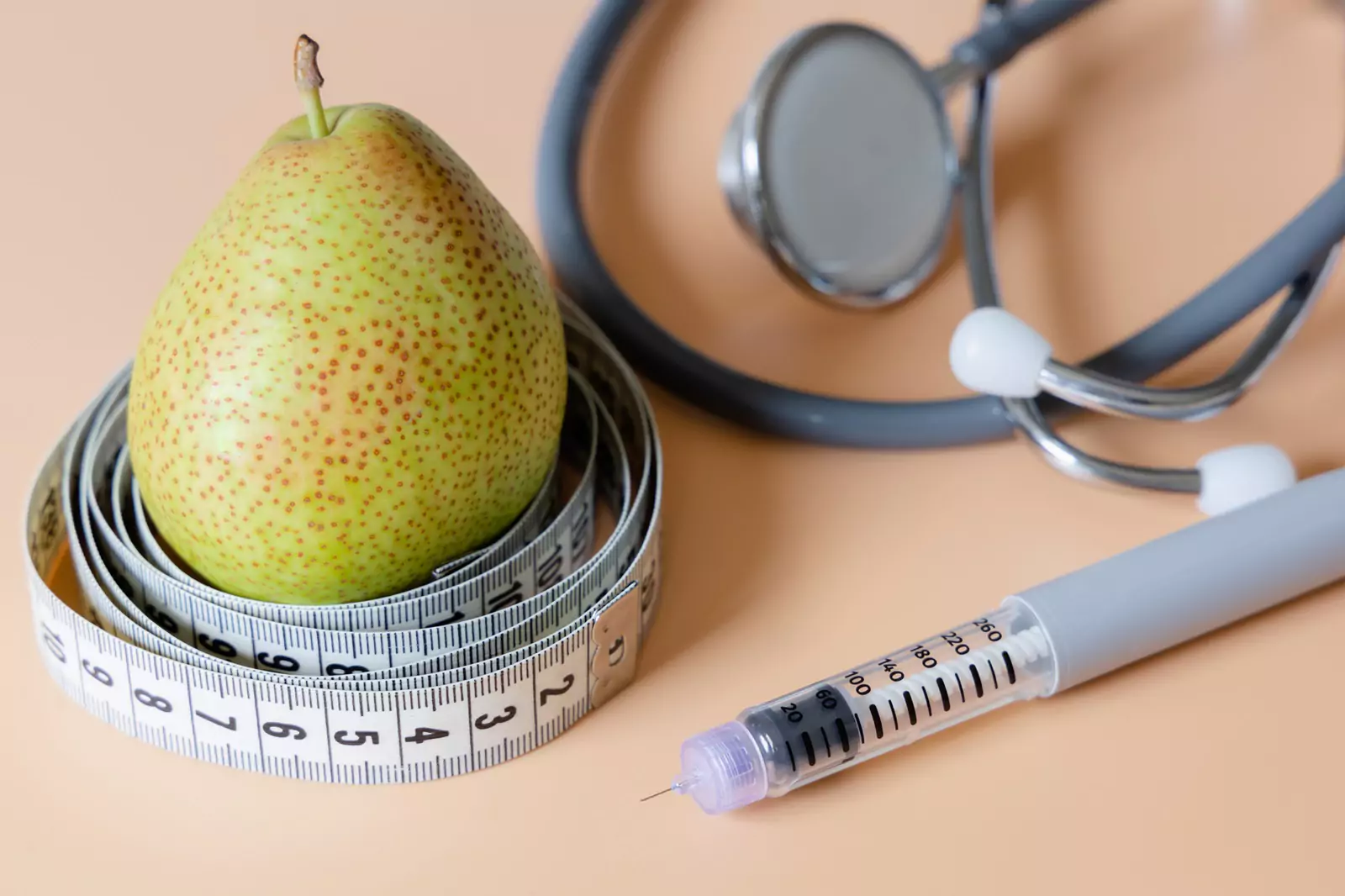
UP TO 40% OFF SITEWIDE






Are Cherries Good for Diabetics?


Table of Contents
- What Benefits do Cherries bring your Body?
- Cherries have a Low Glycemic Index
- Cherries have High Anti-oxidants
- Cherries have High Potassium
- Different Types of Cherries to Try for Diabetes.
- Sweet Cherries
- Tart Cherries
- Limit of How Many to Have
- Side Effects of Eating Cherries
- Recipes to Try with Cherries
- Conclusion
- About The Author
Cherries, a delicious and nutritious fruit, have recently been gaining attention for their potential health benefits for diabetics. These small red fruits are packed with essential vitamins and minerals, making them a great addition to any diet. But what makes cherries particularly beneficial for diabetics? And how many should be consumed to reap their benefits without any side effects?
What Benefits do Cherries bring your Body?
Cherries have a Low Glycemic Index
Cherries have a low glycemic index, meaning they have a minimal impact on blood sugar levels. This is particularly beneficial for diabetics who need to monitor their blood sugar levels to avoid any complications closely. When a diabetic eats food the sugar in the food is absorbed into the bloodstream which causes the pancreas to release insulin.
Insulin is a hormone that helps the body process sugar to be used for energy. However, if the pancreas does not produce enough insulin or if the body becomes resistant to insulin, the sugar stays in the bloodstream which can lead to high blood sugar levels. This can cause a wide range of health problems, including heart disease, stroke, nerve damage, and kidney damage. The glycemic index is a measure of how quickly a food raises blood sugar levels.
Foods that have a high glycemic index such as white bread or candy cause a rapid spike in blood sugar levels. On the other hand, foods with a low glycemic index such as cherries cause a slow and steady rise in blood sugar levels. This is important for diabetics because it allows them to better control their blood sugar levels which can help to reduce the risk of complications. Cherries have a glycemic index of 22 which is considered to be low.
This means that when a diabetic eats cherries their blood sugar levels will rise slowly and steadily, allowing them to better control their blood sugar levels. This can help to reduce the risk of complications and can also help to improve overall health and well-being.
It's important to note that even though cherries have a low glycemic index it's still important for diabetics to consume them in moderation. Eating too many cherries can still cause a spike in blood sugar levels especially if you are eating them in large amounts or in combination with other high-sugar foods. It's also important for diabetics to consult with their doctor or a registered dietitian before making any changes to their diet.
Cherries have High Anti-oxidants
One of the most significant benefits of cherries is their high antioxidant content specifically their concentration of anthocyanins. These powerful antioxidants have been shown to have anti-inflammatory properties, which can help to reduce the risk of diabetes-related complications. For example, inflammation has been linked to cardiovascular disease which is a common complication of diabetes.
The anti-inflammatory properties of anthocyanins can help to reduce the risk of heart disease by reducing inflammation in the body. Additionally, cherries are rich in Vitamin C and E which also have antioxidant properties that help in maintaining healthy blood vessels and lower inflammation. Another area where cherries can help diabetics is kidney damage.
Diabetes can cause damage to the kidneys over time leading to kidney failure. The anti-inflammatory properties of anthocyanins can help to reduce the risk of kidney damage by reducing inflammation in the kidneys. Additionally, cherries are also a good source of potassium which is essential for maintaining healthy kidney function. Potassium can help to reduce the risk of kidney stones and other kidney-related problems.
It's important to note that while cherries are a great addition to any diet they should not be considered a replacement for other diabetes management techniques such as exercise and medication. However, incorporating cherries into your diet can provide an additional layer of protection against diabetes-related complications. It's always recommended to consult with your physician before making any major changes to your diet especially if you have diabetes or any other underlying health conditions.
Cherries have High Potassium
Cherries are a rich source of potassium, an important mineral that plays a critical role in maintaining healthy blood pressure levels. Potassium helps to counteract the effects of sodium in the body and has been shown to help lower blood pressure levels. High blood pressure or hypertension is a common complication of diabetes and it can lead to serious health issues such as heart disease stroke and kidney damage.
Potassium is also known to have a protective effect on the cardiovascular system by regulating the heart's rhythm reducing the risk of heart attacks and strokes. Potassium also helps decrease the risk of developing osteoporosis, a condition that makes bones brittle and more prone to fractures. When it comes to hypertension and diabetes, a diet rich in potassium can help reduce the risk of hypertension.
This is because potassium helps lower blood pressure by dilating blood vessels and making blood flow easier. By consuming cherries that are rich in potassium diabetics can help to reduce their blood pressure levels and thus lower their risk of hypertension. It's important to note that potassium from food sources like cherries is considered to be safe and beneficial for people with normal kidney function.
However, for those with kidney problems, it's best to consult with a physician before increasing potassium intake. In conclusion, cherries are a great fruit for diabetics as they are low in sugar and high in potassium which is essential for maintaining healthy blood pressure levels.
The potassium in cherries can help to lower blood pressure levels which can reduce the risk of hypertension a common complication of diabetes. To get the best benefits, it's recommended to consume 1-2 cups of cherries per day and consult with a physician before adding them to your diet.
Different Types of Cherries to Try for Diabetes.
When it comes to different types of cherries to try for diabetes it's important to understand the unique benefits of each type. The most popular types of cherries are sweet cherries which are typically red or black in color and tart cherries which are typically red or dark red in color.
Sweet Cherries
Sweet cherries are a delicious and nutritious fruit that are packed with antioxidants including anthocyanins. These powerful antioxidants are known for their ability to improve blood sugar control and reduce the risk of diabetes-related complications. Studies have found that consuming sweet cherries on a regular basis can help to lower blood sugar levels improve insulin sensitivity and even reduce the risk of developing type 2 diabetes.
One study found that consuming sweet cherries can help lower blood sugar levels by increasing the sensitivity of insulin receptors. This means that the cells in the body are able to respond more efficiently to insulin which helps to regulate blood sugar levels. Additionally, the anthocyanins in sweet cherries have been found to have anti-inflammatory properties which can also help to improve insulin sensitivity.
In addition to improving blood sugar control sweet cherries are also a good source of vitamin C and potassium. Vitamin C is an essential nutrient that helps to support overall health and well-being. It is a powerful antioxidant that helps to protect the body from free radical damage and supports a healthy immune system. Potassium is an important mineral that helps to regulate blood pressure and supports healthy heart function.
Another study found that consuming sweet cherries can help to reduce the risk of developing type 2 diabetes. This is likely due to the combination of antioxidants and other beneficial nutrients found in sweet cherries. The study found that people who consumed sweet cherries on a regular basis had a reduced risk of developing type 2 diabetes compared to those who did not consume sweet cherries.
In short sweet cherries are an excellent food choice for people with diabetes. They are rich in antioxidants including anthocyanins which can help to improve blood sugar control and reduce the risk of diabetes-related complications.
Additionally, sweet cherries are also a good source of vitamin C and potassium which can help to support overall health and well-being. Incorporating sweet cherries into your diet is a delicious and nutritious way to support your health as a diabetic.
Tart Cherries
Tart cherries are known for their high levels of antioxidants including quercetin. These antioxidants have been found to have powerful anti-inflammatory properties which can help to reduce inflammation in the body. Inflammation is a major risk factor for diabetes as it can lead to insulin resistance and an increase in blood sugar levels. By reducing inflammation tart cherries can help to improve insulin sensitivity which can lead to better blood sugar control and a reduced risk of developing diabetes.
In addition to reducing inflammation tart cherries have also been found to have a number of other health benefits. For example, studies have shown that consuming tart cherries can help lower blood pressure reduce the risk of heart disease, and even aid in the prevention of cancer. This is likely due to the high levels of antioxidants found in tart cherries which can help to protect cells from damage and prevent the growth of cancer cells.
Tart cherries are also a good source of fiber which can help to regulate blood sugar levels and promote healthy digestion. Fiber is essential for maintaining a healthy gut and preventing constipation.
Additionally, it can help to slow down the absorption of sugar in the bloodstream which can help to regulate blood sugar levels and prevent spikes in blood sugar. In short tart cherries are a great food to include in a diabetes-friendly diet.
They are high in antioxidants and anti-inflammatory compounds which can help to reduce inflammation improve insulin sensitivity and lower the risk of developing diabetes. They also contain fiber which can help to regulate blood sugar levels and promote healthy digestion. So if you're looking for a delicious and healthy way to manage your diabetes consider adding tart cherries to your diet.
In summary, both sweet and tart cherries have unique benefits for those with diabetes. Sweet cherries are known for their high levels of anthocyanins which can help to improve blood sugar control and reduce the risk of diabetes-related complications.
Tart cherries on the other hand are known for their high levels of quercetin which can help to reduce inflammation and improve insulin sensitivity. Both types of cherries can be enjoyed in moderation as part of a healthy and well-balanced diet for those with diabetes.
Limit of How Many to Have
When it comes to how many cherries to have it's important to be mindful of your intake to prevent any negative side effects. Eating too many cherries can lead to an upset stomach or diarrhea which can be uncomfortable and disrupt your daily routine. To avoid this it's recommended to limit your cherry intake to about 1-2 cups per day.
This amount may vary depending on your personal tolerance level and any other dietary restrictions you may have. It's also important to be mindful of the added sugar when consuming canned or jarred cherries.
These types of cherries may contain added sugar which can negatively impact blood sugar levels for those with diabetes. To avoid this it's best to opt for fresh or frozen cherries without added sugar. These cherries are a natural source of sweetness and provide a range of health benefits without the added sugar.
Side Effects of Eating Cherries
When it comes to side effects cherries are generally considered safe for most people. However, some people may experience an allergic reaction to cherries such as itching or hives. If you experience any allergic symptoms it's best to avoid cherries and speak with your doctor. Additionally eating too many cherries can lead to an upset stomach or diarrhea.
It's important to monitor your intake and listen to your body. In addition to monitoring your cherry intake, it's also important to speak with your doctor or a registered dietitian to ensure that cherries fit into your overall diabetes management plan. They may have additional recommendations or guidelines for your specific needs. With the right approach, cherries can be a delicious and nutritious addition to your diet.
Recipes to Try with Cherries
Now let's take a look at some delicious recipes to try with cherries. One example is a cherry smoothie. To make this recipe you'll need 1 cup of fresh or frozen cherries 1 banana 1 cup of almond milk and 1 tablespoon of honey (optional). Blend all ingredients together in a blender until smooth and enjoy! Another recipe to try is cherry oat bars.
To make this recipe you'll need 1 cup of rolled oats 1/2 cup of almond flour 1/4 cup of honey 1/4 cup of melted coconut oil 1 teaspoon of vanilla extract and 1 cup of fresh or frozen cherries. Mix together the oats almond flour honey coconut oil and vanilla extract in a bowl.
Fold in the cherries and press the mixture into a greased 8x8-inch baking dish. Bake at 350 degrees for 20-25 minutes or until golden brown. Let cool and cut into bars.
Conclusion
In conclusion, cherries can be a tasty and beneficial addition to a diabetes-friendly diet. Different types of cherries have different levels of antioxidants which can help to regulate blood sugar levels and improve overall health.
It's important to limit your intake to a moderate amount and be mindful of added sugar. Additionally, be aware of any potential side effects and speak with your doctor if you experience any allergic symptoms. And don't forget to try out some delicious cherry recipes!
About The Author
Meet Dr. Ahmet Ergin a highly skilled and dedicated endocrinologist with a passion for diabetes care. Dr. Ergin's journey in the medical field began with earning his medical degree with honors from Marmara University School of Medicine in Istanbul Turkey. He then went on to complete his internal medicine residency and endocrinology fellowship at Cleveland Clinic one of the top medical centers in the United States located in Cleveland Ohio.
With a wealth of knowledge and experience in his field, Dr. Ergin is board-certified in Internal Medicine Endocrinology Diabetes, and Metabolism making him a respected and highly qualified physician. He is also a certified diabetes education specialist author of the book "The Ultimate Diabetes Book" and the founder of the SugarMD YouTube channel where he shares valuable insights and information on diabetes management and care. Currently, Dr. Ergin practices in Port Saint Lucie FL where he provides exceptional care to his patients and helps them to effectively manage their diabetes.
It is important to note that the information on diseases and treatments provided on this website is for general guidance only and should never be considered a substitute for the advice provided by a qualified healthcare professional. Always seek the advice of your physician health provider or other qualified healthcare professional with any questions you may have regarding your health.
Written By Dr. Ahmet Ergin
466 total articles
Meet Dr. Ahmet Ergin, a highly skilled and dedicated endocrinologist with a passion for diabetes care. Dr. Ergin earned his medical degree with honors from Marmara University in Istanbul. He completed internal medicine residency and endocrinology fellowship at Cleveland Clinic. Dr. Ergin is board-certified in Internal Medicine, Endocrinology, Diabetes, and Metabolism due to his vast medical expertise. He's a certified diabetes educator, author of “The Ultimate Diabetes Book,” and founder of “the SugarMD YouTube channel.” Dr. Ergin offers exceptional diabetes care to his patients in Port Saint Lucie, FL, helping them manage effectively. For a closer look into his insights and experiences, connect with Dr. Ahmet Ergin on LinkedIn, Instagram, and YouTube.”
Disclaimer: These statements have not been evaluated by the Food and Drug Administration. Information on this website isn't intended to treat, cure or prevent any disease. Discuss with your doctor and do not self-treat.
Products











